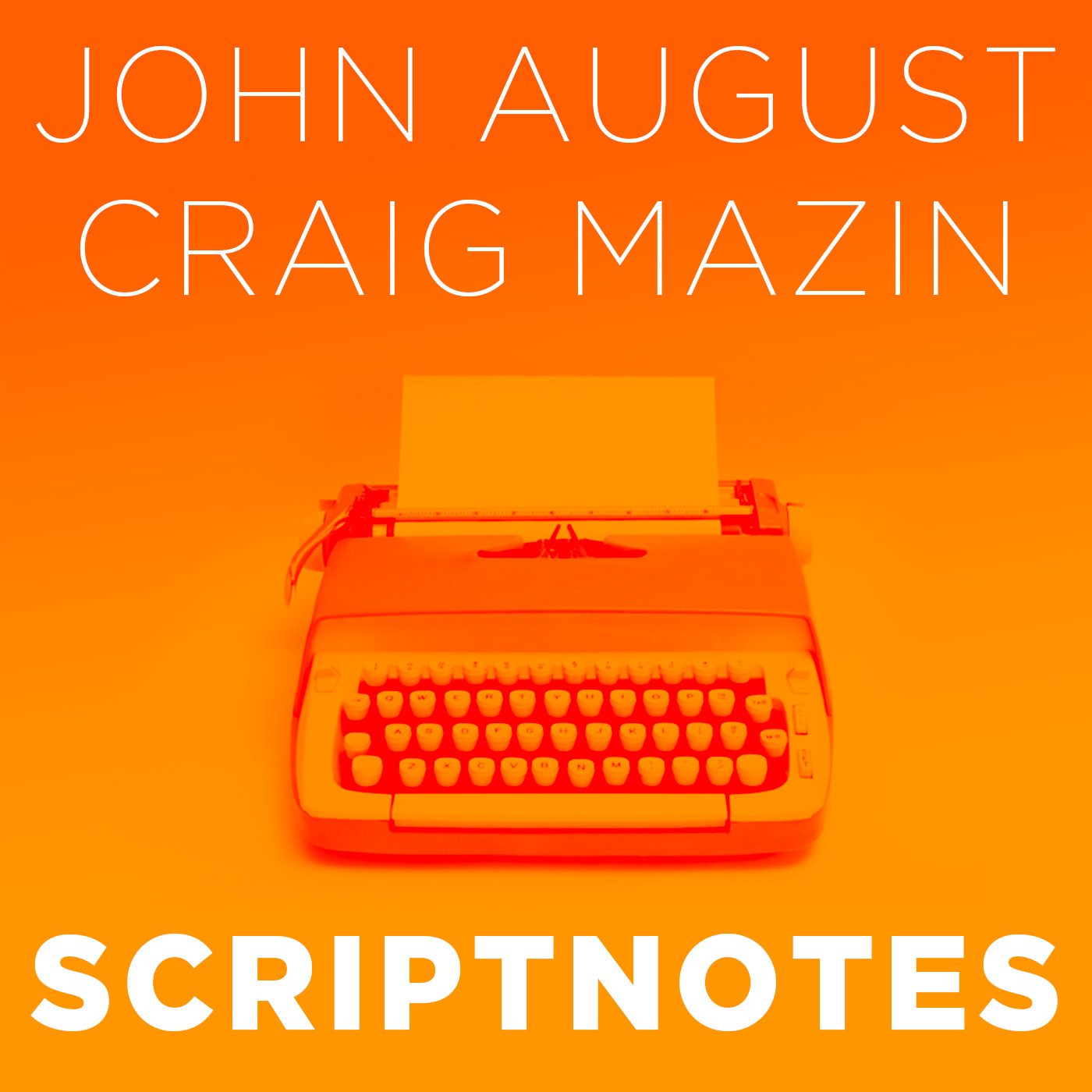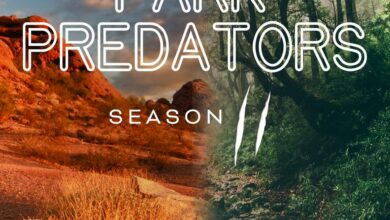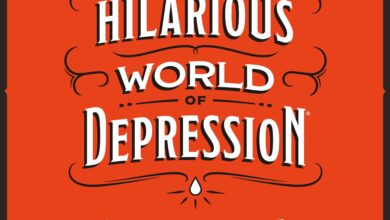There are a number of screenwriting podcasts and podcasts about writing in general, and many of them claim to be the definitive podcast about the craft. While certain podcasts hosts have the freedom to say whatever they like about their own podcasts, most experienced screenwriters and screenwriters with professional aspirations would agree that Scriptnotes is one of the best screenwriting podcasts available, and I would venture to say that the majority of listeners would list Scriptnotes as the hands-down best screenwriting podcast.
Per the show’s tagline, Scriptnotes is “a podcast about screenwriting and things that are interesting to screenwriters.” The podcast is hosted by prolific screenwriters and television writers John August and Craig Mazin, and the weekly hourlong (give or take) recording has been going strong for more than a decade. For any aspiring screenwriter, it is a must-listen. For the casual fan of movies and TV, it is still enjoyable.
Each episode of Scriptnotes features a main topic that is usually related to screenwriting in some way, shape, or form. The hosts will discuss the topic at length and provide their own unique insight and explain what works for them and what does not work. If they feel they are not an authority on a given subject, they will often invite a guest to provide insight from their personal experience.
The Scriptnotes Podcast Hosts
John August and Craig Mazin are proficient writers, and their wealth of experience makes them more than qualified to hose a podcast about screenwriting. They had both been working on their own screenwriting blogs when they conceived the idea of doing a podcast together. This evolved into a unique relationship, which has grown over the years into a palpable friendship.
John August
John August is a Los Angeles-based screenwriter and director. His credits include Go, Big Fish, Charlie’s Angels, Corpse Bride, and Dark Shadows. He also wrote the stage adaptation of Roald Dahl’s Charlie and the Chocolate Factory. In 2005, he created the John August Scholarship, which provides financial assistance to aspiring screenwriters who are attending college.
John is not only a screenwriter. He wrote a middle-grade fiction series of books called Arlo Finch and he has developed screenwriting software called Highland, which is meant to be a better alternative to Final Draft, which John and Craig have long loathed (and endlessly complain about on the podcast).
Craig Mazin
Craig Mazin is also Los Angeles-based screenwriter and director. His credits include The Hangover Part II, Identity Thief, The Huntsman: Winter’s War, and Chernobyl, which earned a number of Emmys. He also wrote the script for The Scorpio Races, which was adapted from the novel by Maggie Stiefvater.
John and Craig are particularly articulate about the tools, trade, and business of screenwriting, but they are also well-read and up to date on current events. They tend to provide their own unique insight on politics and policy, and they own their opinions. Not all listeners necessarily enjoy this, however, but the hosts go to great lengths to remind their audience that they are only their opinions.
Podcast Guests
A number of writers, directors, showrunners, producers, and actors have appeared on the show, ranging from all different genres and formats, including TV, film, web, books, and other media. Some notable guests are Aline Brosh McKenna of The Devil Wears Prada and My Crazy Ex-Girlfriend (episode #548), Liz Meriwether of New Girl and The Dropout (episode #546), and Michael Schur of The Office, Parks and Recreation, and The Good Place (episode #537). The Scriptnotes podcast is well-known and well-admired among television and film creatives, and there seems to be no shortage of guests that want to contribute.
Guest contribution is slightly different from other podcasts. On any number of other podcasts, a guest might appear to promote something like a movie release or a new television series. If a guest on the Scriptnotes podcast has something to promote, that usually comes secondary to the main topic.
John and Craig don’t only invite film and television industry professionals onto the podcast. When the need arises, they bring on experts in a given field. For example, in episode #547 (“Good Energy”), guests Anna Jane Joyner and Quinn Emmett from Good Energy Stories were brought on to discuss how climate change is being portrayed in movies and television. And in the same vein, Joan Rohlfing of the Nuclear Threat Initiative for the U.S. Department of Energy and author and reporter David E. Hoffman of the Washington Post were invited onto episode #545 (“The Nuclear Episode”) to discuss the portrayal of nuclear energy, nuclear safety, and nuclear war on screen.
Unique Scriptnotes Podcast Segments
There are recurring segments on the show, such as “How Would This Be A Movie” where the hosts pick a few articles or stories from the news and figure out how the topic could or could not be turned into a movie. They also occasionally feature a “Three Page Challenge” in which listeners and aspiring screenwriters can submit three pages of a script for John and Craig to critique. These segments are not featured on every episode, but when they are featured, they are generally enjoyable listens.
At some point early on in an episode or towards the end of the episode, John and Craig answer listener questions, which range from technical questions about the screenwriting format to advice on how to approach different situations professionally.
On the rare occasion — maybe one or two times every year (maybe not even that often) — John and Craig will do a “Deep Dive” into a movie. These are fascinating episodes and provide a great deal of insight into the movie being presented and the work that had gone into the screenplay. Some of the movies they have featured in their Deep Dive segments over the years have been Die Hard (episode #527) Clueless (episode #444), Finding Nemo (episode #403), Frozen (episode #128), The Little Mermaid (episode #92), and Raiders of the Lost Arc (episode #73). I recommend listening to every one of their Deep Dives if you haven’t already.
A Truly Free Screenwriting Podcast
John and Craig make it clear that they are not profiting from their podcasting venture. There are absolutely zero ads, which is unusual for a podcast with an audience as big as Scriptnotes has. The podcast hosts seem to truly enjoy what they are doing and it shows week after week. They offer merchandise and a premium subscription that is not a super expensive monthly subscription, but it seems like any money earned from the subscription-level service or sales of merchandise goes into the podcast’s overhead like equipment, transcriptions, and staff and not necessarily into the host’s pockets.
One Cool Thing
At the end of every podcast, John and Craig each share a “One Cool Thing.” These could be anything from a book to an article to an app or an interesting video. Any time a guest is on the screenwriting podcast, they will invite the guest to share a “One Cool Things” as well.
Craig is a big fan of puzzles and has featured things like escape rooms and puzzle apps. John and Craig are both active Dungeons and Dragons players, so any fans of the game might enjoy their banter any time they bring up D&D.
Final Thoughts on Scriptnotes
It’s truly difficult to find anything negative to say about this podcast. After all, John and Craig are volunteering their time and offering advice without receiving any advertising money or paycheck. Some listeners have been frustrated about their left-leaning politics and viewpoints, but the hosts are open-minded individuals and are happy to listen to the other side in a respectful debate.
John and Craig don’t always agree, and it’s refreshing to hear two intellectual individuals have a debate in which they do not agree and do it in a respectful manner. Their discourse is an excellent model for how intelligent adults should disagree.
If you’re a screenwriter or even just interested in the business and art of screenwriting, I highly recommend the Scriptnotes podcast. It’s easily one of the best podcasts out there for screenwriters and it’s absolutely free. You can find Scriptnotes wherever you listen to your podcasts.






